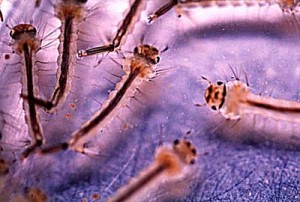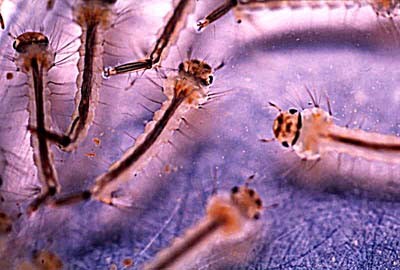
Dengue has become a serious health problem worldwide, and scientists are focusing their attention on understanding how the dengue virus causes disease. As they learn more about how dengue affects the body, researchers hope to diagnose and treat dengue better. Current dengue research also aims to provide better surveillance to limit the effect of dengue epidemics.
Researchers indeed continue to develop vaccines for tropical, mosquito-vectored diseases like dengue fever, which affects 50 million people per year.
There are no commercially available vaccines for the virus – yet. But, they've run into a big problem.
Researchers watching vaccine development caution that there will be initial disease spikes with its use. There's no argument about this observation. In fact, it's admitted.
But the explanation to ward off panic and ensure that people in other countries will take that future risk, is beyond a mental back flip.
In a statement from Oregon State University, the idea is that disease spikes from the vaccine are natural; nothing to worry about:
In fact, it will just be the natural result of complex interactions between less-than-perfect vaccine protection and routine fluctuations in the populations of insects who carry the diseases.
Jan Medlock, an assistant professor in the Department of Biomedical Sciences at Oregon State University said:
Our analysis suggests that if we develop and widely use a vaccine for dengue fever, there may later be spikes in the incidence of the disease that are two to three times higher than its normal level.
We can explain why this will happen and show how, in the long run, vaccine use will clearly result in fewer cases of disease. Our concern is to warn people in advance about this issue, so that policy makers and the public don't freak out and lose faith in the vaccination programs. [emphasis added]
This research, published in Epidemiology and Infection, was done by those at the OSU College of Veterinary Medicine and Clemson University, both of which supported the studies. Scientists used mathematical modeling to examine the quirks of infectious disease transmission that may lead to this quandary.
The work was specific to dengue fever, but may also be relevant to other diseases for which vaccines are being sought, such as malaria, and in which the level of protection is less than total.
Oregon State:
“The problem, if and when we develop and use a vaccine, is that it will provide some, but not complete protection, and it will interrupt the natural, fairly steady rate of infections among children,” Medlock said.
In this scenario, the beginning of a vaccination program will slow the numbers of children getting the disease – for a while. But it’s expected that a dengue vaccine will not provide total protection against infection. Then, during a period when naturally fluctuating mosquito populations reach an unusually high level, a disproportionate number of children – who are still vulnerable to infection and have never had the disease – will become infected in a short period.
They bemoan a loss of faith in the vaccination program. But their idea of a worse-case scenario is avoidance of the vaccine – not the uptick in disease as a result. Some short-term spikes could even be as high as seven times the average rate, they said. Instead of solving the problem or innovating a new solution, they want people to push through the fear and get it eventually anyway, with hope of a dengue-less future.
Medlock adds:
In fact, we conclude in this analysis that over a 15-year period, a vaccination program will clearly reduce the number of overall infections. These significant spikes will mostly occur as the program is beginning. What we need to do is help people understand these forces so they anticipate them.
Here's their other proposal: to literally vaccinate fewer people. This would cause higher numbers of people to get the disease in the long run but reduce the intensity of the spikes and the associated demands on a health care system.
Scientists are investigating the mechanisms by which the dengue virus causes disease by focusing on understanding dengue pathogenesis, the virus itself, and vector biology. Researchers also aim to improve diagnostics for patients with dengue so that they can receive effective treatments sooner. In addition, by improving surveillance of dengue cases and mosquito vectors, researchers hope to reduce the effect of dengue epidemics.
Please Read this Article at NaturalBlaze.com





Leave a Reply